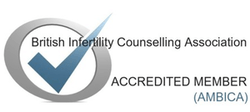Every day we read news stories about awful things people have done, sometimes with quite devastating outcomes. After taking in the impact, often we can’t help but think: “Didn’t they realise they would be caught? It’s so obvious.”
It can be impulsive acts, such as the hitting and killing of PC David Phillips by an adrenaline-fuelled driver of a stolen van near Liverpool recently; or it can be the coldly-calculating deception of the Volkswagen engineers who created and fitted software to cheat car emissions tests. They appeared to have got away with it for a number of years, which is the other end of the spectrum from a spur-of-the moment act carried out in fear, excitement or anger.
Poor decision taking
Looking back at these events in a detached way we wonder how anyone can get themselves to a point where they take such risks. It doesn’t matter whether they are poorly educated criminals or highly qualified professionals, people still take poor decisions (and I’m conscious this article doesn’t consider the morality of their actions).
Rationally, we know that if you steal a vehicle you could be involved in a police chase that is likely to end in your capture and possibly in tragedy. Or if you commit fraud the chances are you will be found out. What thought processes are these people going through: is the potential reward so tempting it skews their judgement? Or is there just action and no thought?
When I pondered on this further I realised that we all go through these situations, possibly several times a day. Ok, not terrible crimes, but situations when we should pause and think something through, changing the course of action we are about to embark on. These can be very simple things, such as rushing out of the house without the keys, putting sugar in the wrong cup, or sending an email or tweeting with inappropriate or spiteful comments. The outcomes can vary, from having to make another cup of tea, to calling out the locksmiths on a freezing day, to public embarrassment about our comments. In some instances, such as social media shaming, careers and lives are changed forever. What was I thinking of?
Are you thinking ‘properly’?
The truth is, of course, that we weren’t thinking ‘properly’: our brains (or minds if you prefer) can only cope with one conscious thought at a time. Despite the fact that the brain is an amazingly powerful organ – and never mind the popularity of multi-tasking – we cannot fully concentrate on more than one thing at a time.
So if we are worrying about being late we may not think about our door keys; if we are listening intently to an interesting programme on the radio we can get spoon-happy with the sugar; and if we are angry with what someone has just said to us we will press the send key with a resounding thump. Only later, when these emotions have subsided do we ask: ‘Why did I do that?’
Press the pause button
So what can we do to stop future mishaps?
Practising mindfulness helps us to focus attention in the here and now; we learn not to be perpetually reliving scenes from the past or thinking of our to-do list. However, if we are listening to the radio mindfully then we can’t make a cup of tea at the same time. So the phrase ‘Just do one thing at a time’ is relevant here.
You might have devices to remind you of important things – a key holder by the door or even a big notice saying ‘Don’t forget the keys!’ A Post-it note on the keyboard that says ‘Wait!’
If you are prone to these event you can practise an NLP technique that can help you press the ‘pause’ button: think of a phrase, such as ‘Wait and think’, and at the same time press your thumb and first finger together hard, repeating the phrase several times; this will lock in the thought. Then when you are next rushing to do something, press the digits together and the thought will come to mind, helping you to pause and think. Of course, you have to remember to press your thumb and finger together.
The bottom line is to pause as often as you can remember to. I check my keys before shutting the front door; I read and re-read emails (and this post); I check I have addresses and directions before I set off on a journey (I once went to another country without these details…), but it’s a work in progress.
Let ‘Pause and think’ become your mantra.

